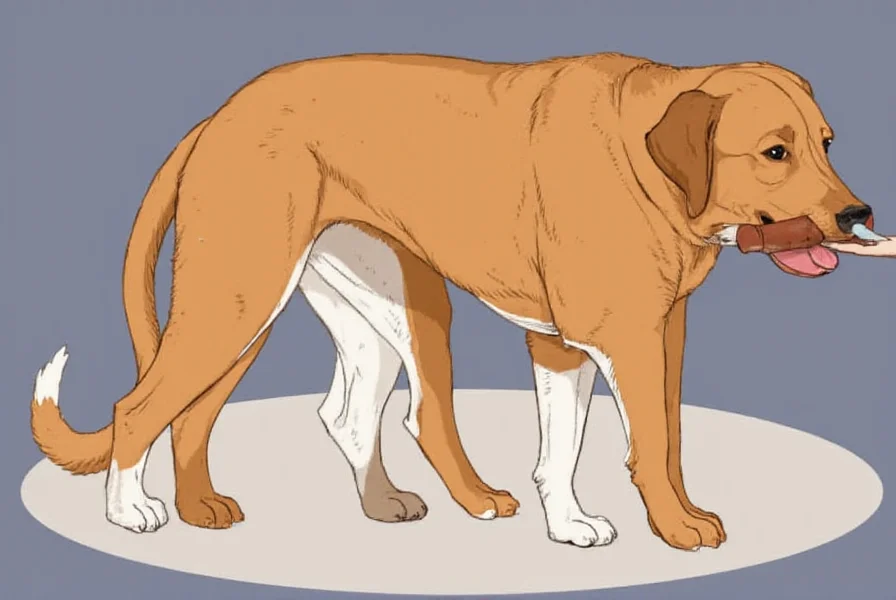Based on veterinary research and toxicology studies, cinnamon is not highly toxic to dogs in small amounts, but large quantities can cause digestive issues, low blood sugar, and potential liver problems. While not as dangerous as chocolate or xylitol, cinnamon should be given cautiously and never in concentrated forms like essential oils.
Understanding Cinnamon's Effects on Dogs
Many pet owners wonder whether common kitchen spices like cinnamon are safe for their canine companions. Unlike highly toxic substances such as chocolate or xylitol, cinnamon falls into a gray area where moderate exposure typically causes minimal issues, but excessive consumption can lead to health complications.
Cinnamon Safety Profile for Canines
Cinnamon contains compounds like coumarin that can affect dogs differently than humans. While the is cinnamon safe for dogs to eat question doesn't have a simple yes-or-no answer, understanding the dosage thresholds and potential reactions is crucial for responsible pet ownership.
| Cinnamon Form | Safety Level for Dogs | Notes |
|---|---|---|
| Ground cinnamon (small amounts) | Moderately safe | Less than 1/2 teaspoon for medium dogs |
| Cinnamon sticks | Low risk | Choking hazard more than toxicity concern |
| Cinnamon essential oil | Highly dangerous | Avoid completely - highly concentrated |
| Cinnamon supplements | Consult veterinarian | Dosage varies by product and dog size |
Potential Benefits of Cinnamon for Dogs
Some cinnamon supplements for dogs benefits include anti-inflammatory properties and potential blood sugar regulation. Research suggests small amounts might help with:
- Mild anti-inflammatory effects
- Potential blood sugar stabilization
- Natural antimicrobial properties
- Antioxidant benefits
However, these potential advantages must be weighed against the risks, and any supplementation should occur only under veterinary supervision.
Risks of Cinnamon Exposure in Dogs
When considering how much cinnamon is toxic to dogs, the threshold varies by dog size and cinnamon form. The primary concerns include:
Digestive Distress
Large amounts of cinnamon commonly cause:
- Vomiting
- Diarrhea
- Abdominal pain
- Decreased appetite
Respiratory Issues
Inhaling cinnamon powder can irritate nasal passages and lungs, potentially causing coughing or breathing difficulties - a particular concern with cinnamon and dogs digestive issues related to accidental inhalation.
Low Blood Sugar
Cinnamon's blood sugar-lowering properties can become dangerous when dogs consume excessive amounts, leading to hypoglycemia with symptoms like weakness, lethargy, and in severe cases, seizures.
Liver Toxicity
Long-term exposure to high coumarin levels (found in Cassia cinnamon) may potentially cause liver damage, though this typically requires sustained high-dose exposure rather than a single incident.

What to Do If Your Dog Consumed Cinnamon
If you're concerned about what happens if my dog ate cinnamon, follow these steps:
- Assess the amount consumed - Was it a sprinkle or the entire container?
- Check the cinnamon form - Powder, sticks, or essential oil?
- Contact your veterinarian - Provide details about your dog's size and the estimated amount consumed
- Monitor for symptoms - Watch for vomiting, diarrhea, or unusual lethargy
- Do not induce vomiting unless specifically instructed by a professional
For cinnamon toxicity in dogs symptoms that appear severe (persistent vomiting, weakness, or difficulty breathing), seek immediate veterinary care rather than waiting.
Veterinary Recommendations on Cinnamon Use
Most veterinarians advise against deliberately giving cinnamon to dogs unless specifically recommended for a medical condition. The veterinarian advice on cinnamon for dogs generally includes:
- Avoid cinnamon essential oils completely
- Limited exposure to culinary cinnamon is usually harmless
- Never use cinnamon as a home remedy without professional guidance
- Consider safer alternatives for common canine health concerns
Cinnamon Compared to Other Common Spices
When evaluating safe spices for dogs besides cinnamon, consider this comparison:
| Spice | Dog Safety | Notes |
|---|---|---|
| Cinnamon | Moderate | Small amounts generally safe |
| Turmeric | Good | Often used in canine supplements |
| Ginger | Good | Helps with nausea and digestion |
| Nutmeg | Dangerous | Can cause tremors and seizures |
| Garlic | Very dangerous | Causes hemolytic anemia |

Preventative Measures for Cinnamon Exposure
To avoid accidental cinnamon and dogs digestive issues, implement these safety practices:
- Store spices securely out of reach
- Be cautious when baking with cinnamon around dogs
- Avoid using cinnamon-based air fresheners
- Check ingredient labels on dog treats and supplements
- Never apply cinnamon essential oil near your pet
When to Consult a Veterinarian
Seek professional advice if your dog:
- Consumed cinnamon essential oil
- Shows persistent vomiting or diarrhea
- Appears unusually lethargic or weak
- Has difficulty breathing after cinnamon exposure
- Consumed large amounts relative to body weight
Conclusion
While can dogs have cinnamon powder in minimal culinary amounts without significant risk, it's not a necessary addition to their diet. The potential benefits don't outweigh the risks for most dogs, especially when safer alternatives exist for common health concerns. Always prioritize your dog's safety by consulting with a veterinarian before introducing any new substances to their routine.











 浙公网安备
33010002000092号
浙公网安备
33010002000092号 浙B2-20120091-4
浙B2-20120091-4